183 results
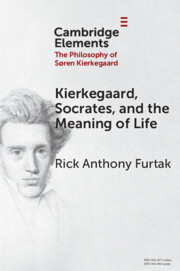
Kierkegaard, Socrates, and the Meaning of Life
-
- Published online:
- 20 March 2025
- Print publication:
- 17 April 2025
-
- Element
-
- You have access
- HTML
- Export citation
Chapter 6 - ‘Well-Water Far Down’
-
- Book:
- Seamus Heaney and Catholicism
- Published online:
- 20 February 2025
- Print publication:
- 27 February 2025, pp 184-209
-
- Chapter
- Export citation
13 - Liturgical Philosophy of Religion
- from Part IV - Forms and Functions of Worship
-
-
- Book:
- The Philosophy of Worship
- Published online:
- 09 January 2025
- Print publication:
- 23 January 2025, pp 229-254
-
- Chapter
- Export citation
2 - Philanthrocapitalism’s Market-Friendly Solution
-
- Book:
- Constructing Modern Slavery
- Published online:
- 09 January 2025
- Print publication:
- 23 January 2025, pp 41-64
-
- Chapter
-
- You have access
- Open access
- HTML
- Export citation
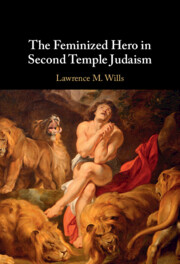
The Feminized Hero in Second Temple Judaism
-
- Published online:
- 09 January 2025
- Print publication:
- 23 January 2025
Inquiring About the Future: The Rationality of Hopefulness
-
- Journal:
- Canadian Journal of Philosophy , FirstView
- Published online by Cambridge University Press:
- 27 December 2024, pp. 1-11
-
- Article
-
- You have access
- HTML
- Export citation
9 - Looking Inside: The Second Pair of Wings
- from Part II - Commentary
-
- Book:
- Bonaventure's 'Journey of the Soul into God'
- Published online:
- 23 November 2024
- Print publication:
- 28 November 2024, pp 334-391
-
- Chapter
- Export citation
In defence of natural religion
-
- Journal:
- Religious Studies , First View
- Published online by Cambridge University Press:
- 21 November 2024, pp. 1-14
-
- Article
-
- You have access
- Open access
- HTML
- Export citation
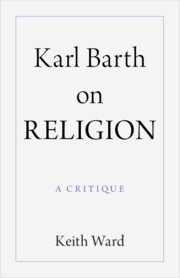
Karl Barth on Religion
- A Critique
-
- Published online:
- 14 November 2024
- Print publication:
- 21 November 2024
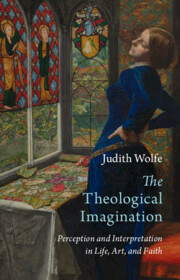
The Theological Imagination
- Perception and Interpretation in Life, Art, and Faith
-
- Published online:
- 09 November 2024
- Print publication:
- 07 November 2024
6 - Conclusion
-
- Book:
- The Theological Imagination
- Published online:
- 09 November 2024
- Print publication:
- 07 November 2024, pp 161-168
-
- Chapter
- Export citation
Faith, Trust, and Proportionate Resilience: A Discussion Note on “How Does Trust Relate to Faith” by McKaughan and Howard-Snyder
-
- Journal:
- Canadian Journal of Philosophy / Volume 53 / Issue 5 / July 2023
- Published online by Cambridge University Press:
- 04 November 2024, pp. 456-461
-
- Article
-
- You have access
- Open access
- HTML
- Export citation
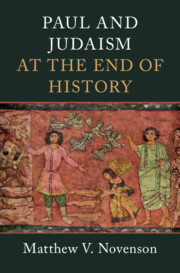
Paul and Judaism at the End of History
-
- Published online:
- 23 October 2024
- Print publication:
- 10 October 2024
‘I can feel sad about it and I can worry, but inside I know everything happens for a reason’: personal experiences in the aftermath of the March 15 Christchurch mosque attacks
-
- Journal:
- BJPsych Open / Volume 10 / Issue 6 / November 2024
- Published online by Cambridge University Press:
- 11 October 2024, e176
-
- Article
-
- You have access
- Open access
- HTML
- Export citation
Utrum sit una tantum vera enumeratio virtutum moralium (Whether There Is a Single Correct List of the Virtues of Character)
-
- Journal:
- New Blackfriars / Volume 105 / Issue 5 / September 2024
- Published online by Cambridge University Press:
- 23 September 2024, pp. 471-477
- Print publication:
- September 2024
-
- Article
-
- You have access
- Open access
- HTML
- Export citation
Chapter 4 - Vegetarianism as Religion
-
- Book:
- Vegetarianism and Veganism in Literature from the Ancients to the Twenty-First Century
- Published online:
- 30 May 2024
- Print publication:
- 06 June 2024, pp 104-136
-
- Chapter
- Export citation
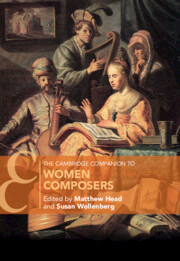
The Cambridge Companion to Women Composers
-
- Published online:
- 23 May 2024
- Print publication:
- 30 May 2024
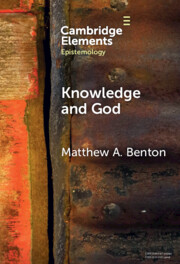
Knowledge and God
-
- Published online:
- 01 May 2024
- Print publication:
- 30 May 2024
-
- Element
- Export citation
4 - Congregation-Based Community Organizing
- from Part I - Organizing and Activism
-
-
- Book:
- The Cambridge Handbook of Community Empowerment
- Published online:
- 18 April 2024
- Print publication:
- 25 April 2024, pp 110-138
-
- Chapter
- Export citation
2 - Languages of Belief
-
- Book:
- Some New World
- Published online:
- 29 March 2024
- Print publication:
- 18 April 2024, pp 24-67
-
- Chapter
- Export citation


